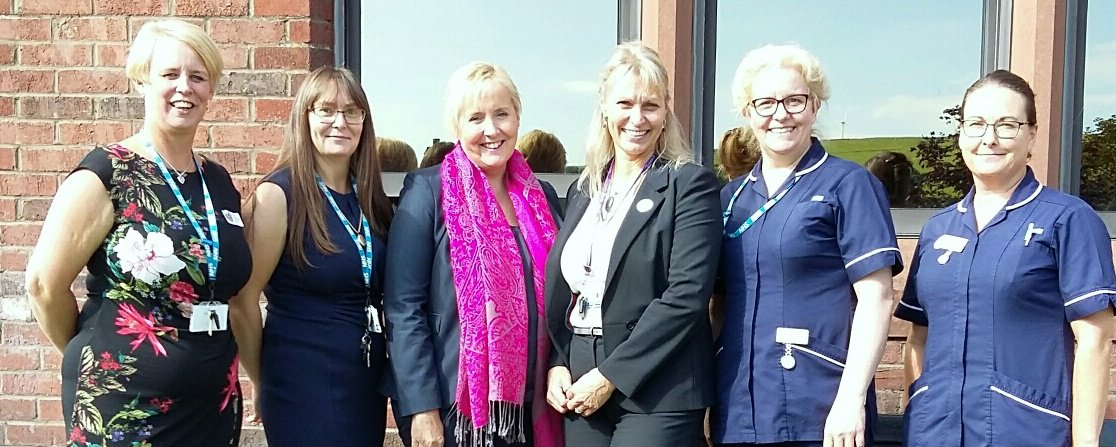Pressure ulcers are caused when a large amount of pressure is placed on the skin for a period of time.
They often affect people with health conditions that make it difficult to move, especially those confined to lying in a bed or sitting for prolonged periods. They are painful and distressing for patients and can very often be avoided.
Preventing these sores from developing is a priority for Cumbria Partnership NHS Foundation Trust staff and makes a huge difference to patients. The Copeland CPFT team began this work with training through the North East & North Cumbria AHSN (Academic Health Science Network) Pressure Ulcer Collaborative in 2015. Annette Bartley, national Quality Improvement Consultant, is part of the AHSN collaborative and has led the improvement work in Copeland.
Staff within CPFT, nursing home staff and staff from other NHS organisations in the county, have had training on the signs to look for that a pressure ulcer is forming and methods to stop them forming in the first place. It has led to a 70% reduction in the numbers of reported pressure sores among patients.
Jo Cloudsdale, Community Manager at Cumbria NHS Foundation Trust (CPFT), said: “Preventing pressure damage is everyone’s business; we can make a huge difference by working closely with our teams in CPFT as well as staff from other NHS Trusts and linking with care homes and care agencies for a more patient centred approach. “Preventing pressure damage in the community can be particularly challenging, so we’ve worked closely with patients and carers and from this we’ve seen great results. The training will now be rolled out across Cumbria with the aim of eliminating avoidable pressure ulcers in the county. ”
Annette Bartley said: “Good care doesn’t happen by accident, it needs to be planned. By changing the culture and getting everybody who is involved in care, including the patient, to take ownership we can make a real difference. The work that’s happening in Cumbria is really advanced and will help to put the county on the map. Aiming high is key and I’m really excited to see that’s what’s happening here.”
Over 600 people have attending the training in Copeland so far which will now be rolled out across Cumbria. Dawn Hill-Eades, Rosehill House Care Home, said: “The training programme has been fantastic; staff come out of it with so much enthusiasm and share what they have learned with others. They’re more confident at spotting where pressure damage could occur and putting steps into place to prevent it. We’ve had no pressure damage since the programme began.”
Roll out of the local training program across Cumbria was celebrated this week with a launch event in St Bees. More than 50 health and social care professionals from Copeland came together to learn more about the work and consider how local training can support their teams.

